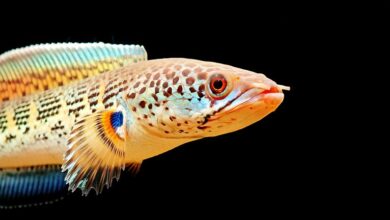
Mutf_In: Nipp_Indi_Grow_14uthgc
The Mutf_In initiative, known as Nipp_Indi_Grow_14uthgc, represents a significant shift in sustainable agriculture. It integrates vertical farming and aquaponics to address pressing issues like food security and ecological stability. By fostering collaboration among various stakeholders, it aims to empower local communities. However, the long-term implications of these innovative techniques on environmental health and resilience remain to be examined. What challenges and opportunities lie ahead for this transformative approach?
Overview of Mutf_In Initiative
The Mutf_In initiative represents a significant development in the realm of agricultural innovation, particularly within the context of sustainable practices.
Its primary goals include enhancing food security and promoting environmentally friendly farming methods.
Community engagement plays a pivotal role in achieving these objectives, fostering collaboration among stakeholders.
Innovative Techniques in Sustainable Agriculture
Exploring innovative techniques in sustainable agriculture reveals a myriad of strategies designed to enhance productivity while minimizing environmental impact.
Vertical farming and aquaponics systems exemplify urban agriculture’s potential.
Regenerative practices, including crop rotation and permaculture design, significantly improve soil health.
Additionally, biodynamic farming principles contribute to ecological balance, offering a holistic approach to sustainable agricultural practices that empower communities and promote freedom in food production.
Empowering Local Communities Through Collaboration
While collaboration can serve as a catalyst for community empowerment, its impact on local agricultural initiatives often goes unrecognized.
Effective community engagement fosters collective impact, enabling diverse stakeholders to address challenges collectively. By pooling resources and knowledge, local communities can enhance agricultural practices, increase resilience, and promote sustainable development.
Ultimately, such collaborative efforts can lead to significant improvements in food security and social cohesion.
Future Implications for Food Security and Environmental Health
As global populations continue to rise and climate change intensifies, understanding the future implications for food security and environmental health becomes increasingly critical.
Ensuring food sustainability necessitates innovative agricultural practices that enhance environmental resilience. This dual focus is essential not only for addressing immediate hunger concerns but also for fostering long-term ecological stability, thus empowering communities to thrive in the face of unprecedented challenges.
Conclusion
In a world grappling with escalating food shortages and environmental degradation, the Mutf_In initiative ironically champions the very practices that could have been considered niche just a decade ago. By intertwining vertical farming and aquaponics with community collaboration, it not only addresses the urgent demands of today but also underscores a curious truth: sustainable agriculture is no longer an alternative but a necessity. Thus, the initiative’s success hinges on the recognition that innovation thrives when rooted in collective action.






